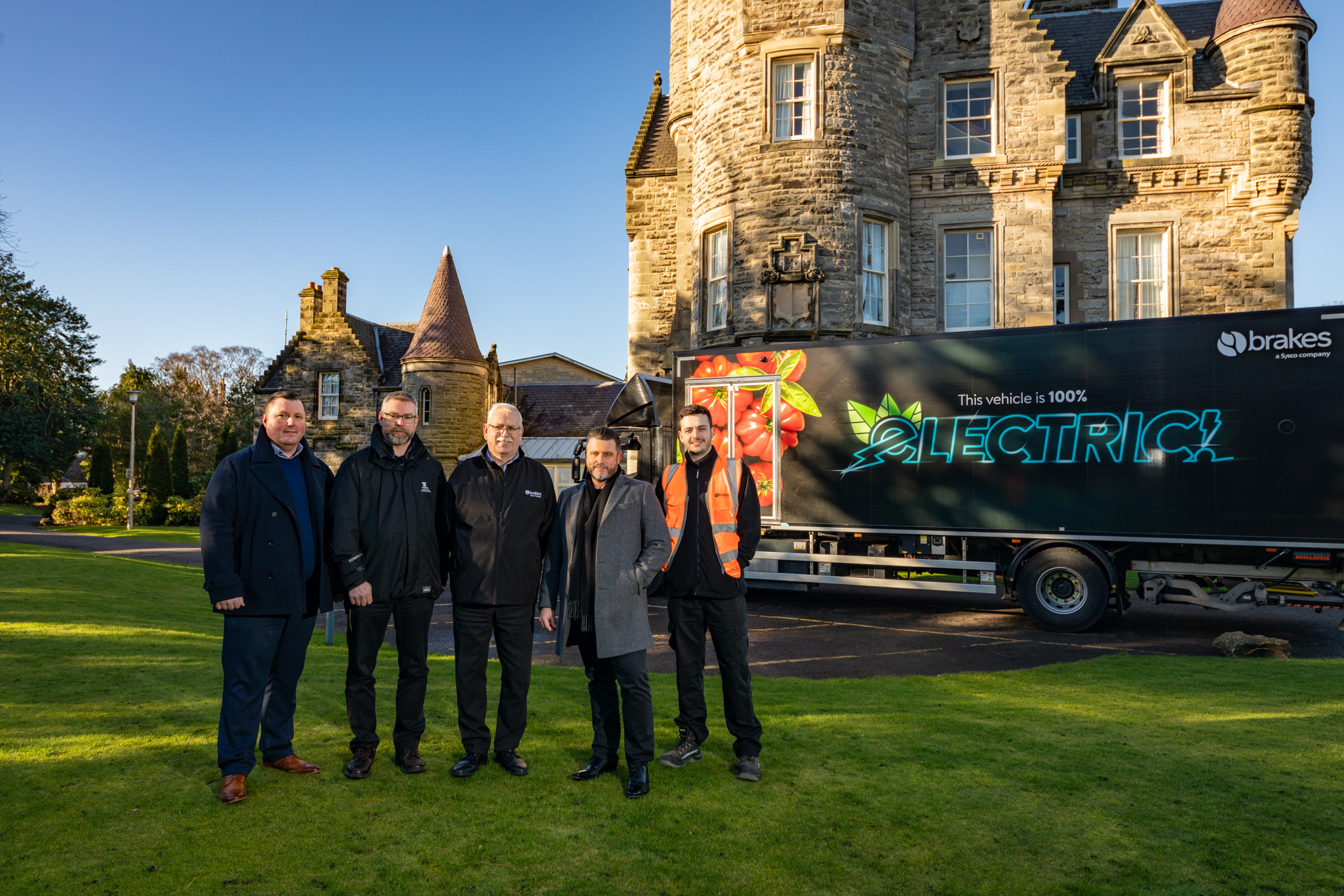University puts Brakes on food delivery emissions

The University of St Andrews has become the first institution in Scotland’s HE Sector to have its food delivered by a fully electric vehicle.
Food service distributor Brakes, part of Sysco GB, has deployed the vehicle as part of its fleet decarbonisation programme.
Delivering to an average of 13 different locations within the University five days a week, the 19-tonne HGV, based at Brakes’ Dundee depot, covers around 300 miles a week powered with renewable electricity.
St Andrews aims to reduce its carbon footprint to net zero by 2035, and is working with suppliers like Sysco that are committed to science-based emissions reduction targets.
Steven McKay, Catering Manager in Residential and Business Services, said: “We are always looking for ways to reduce our carbon footprint in our procurement operations and this trial makes sense for both of us – not only can we cut scope 1 and 2 emissions, but we can really start to learn more about the infrastructure necessary to enable an extension of the trial.”
Chris Boyle, Brakes’ National Sales Manager, said: “We are committed to pioneering a new era of foodservice deliveries across Great Britain, as part of our wide-reaching sustainability goals. Working with partners like St Andrews allows us to test these vehicles in different settings and locations, understand their potential and prepare to invest in decarbonising our fleet.”
The Electra truck, which started deliveries late last year, uses the latest electric vehicle technology with a range of around 280km and two temperature zones – frozen and chilled – allowing frozen, fresh, and ambient products to be delivered on a single vehicle.
Sysco has made considerable investment in exploring alternative technologies to decarbonise its fleet and to cut emissions, with a wider programme to explore the decarbonisation of its fleet both in the UK and globally. Over six months, the carbon emission savings are projected to be more than nince tonnes of CO2e.
Issued by the University Communications Office.